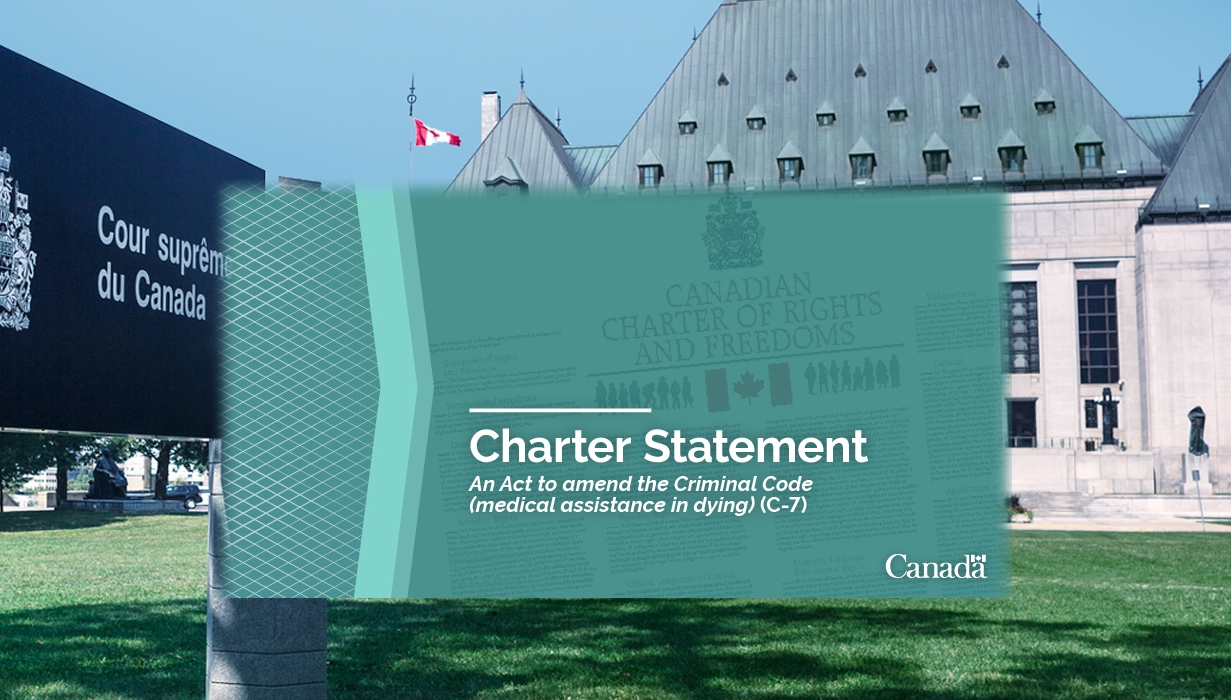
Wishes — failures — realities for the disabled
OPINION — There is a heated debate going on here in Canada about medical assistance in dying (MAiD) because of the changes proposed in Bill C-7, a bill that currently sits with the Senate for review. Several articles have been published in OLM in the past few weeks on the wishes and the failures for the disabled but have failed to countenance the reality. I would like to present another position on the issue.
MAiD and Bill C-7 both have deficiencies, some being addressed in Bill C-7, but nonetheless, MAiD is the current reality of a law directive from the Supreme Court of Canada in February 2015 (Carter decision).
The Supreme Court was speaking for all Canadians (including the disabled) when it ruled:
the existing Canadian Criminal Code prohibitions on voluntary euthanasia (section 14) and assisted suicide (section 241(b)) violate the Canadian Charter of Rights and Freedoms; the new law should permit physician assisted death for a competent adult person who (1) clearly consents to the termination of life; and (2) has a grievous medical condition (including an illness, disease, or disability) that is irremediable (cannot be alleviated by means acceptable to the individual) and causes enduring suffering that is intolerable to the individual in the circumstances of his or her condition.
That’s the basis of the reality under review in the House of Commons and the Senate. The review became necessary because MAiD failed to meet the directive from the Supreme Court. Jean Truchon and Nicole Gladu appealed to the Quebec Superior Court for help (just like two others in Canada) because MAiD failed. They argued that the clause that “death must be reasonably foreseeable” failed to protect the rights to equality as well as life, liberty and security for all Canadians. The Quebec Court ruled in their favour and ordered the Federal law makers to make the requisite changes to MAiD.
With respect to the Truchon decision Justice Baudouin explained, “The vulnerability of a person requesting medical assistance in dying must be assessed exclusively on a case-by-case basis, according to the characteristics of the person and not based on a reference group of so-called ‘vulnerable persons’.” The Justice also added that, “The patient’s ability to understand and to consent is ultimately the decisive factor, in addition to the other legal criteria.”
Now, we’re going around the same circle. We had the moralists (conscientious objectors) and the naysayers crowding the floor and crying for exemptions, precautions, and safeguards. We had them for Sue Rodriquez in 1993, for Kay Carter in 2015, and for MAiD in 2016. They took the floor then and they’re taking our time now.
I won’t write of the moralists. I am very concerned with the naysayers who claim to be speaking for the disabled. They’re taking the time and the attention of the decision makers now – just like before, and they’re missing the entire point. The Supreme Court (in reference to the Canadian Charter of Rights and Freedoms) is saying that disabled persons are entitled to all the rights of all Canadians.
I know of no disabled person who wants his/her rights removed or lessened.
In fact, the irony of it all, is that many of these naysayers have pretended for years to speak and represent the disabled population. In denying disabled persons access to MAiD, they have become “ableists” the very kind of people they’ve been speaking against for years. (Note: ableism is defined as discrimination against disabled persons.) Every argument they put forth to limit access to MAiD is ableism.
I can say this because I am classified as disabled. I have dementia; I am one-eyed and losing vision in the remaining eye, my left knee is crippled; and I am 81 years old.
I hate saying all this because for most of my life I’ve worked with and for people with disabilities. My success as a professional was based upon inculcating and practising a “can do” philosophy. We focussed upon what we can do as opposed to worrying about the “can’ts.” You should be defined by achievement — not failures.
Consequently, in my life I’ve had the opportunity to witness great successes and failures. Some include the successes of my friend Deb. I first met Deb when she was about ready to try coming to school. She had severe cerebral palsy, but she had great support from her family and staff from an institution. How happy we were when she received her first typewriter. It was mechanical and she could type with a pencil between her teeth. We brought Deb into regular classes in grade 7 and she showed all her classmates how she could adapt, learn and attend school dances. She became one of Canada’s first Para-Olympians in swimming. She’s since designed and sold wheelchairs, written books (all with teeth and pencil), travelled with and without family and stood (figuratively) for disabled persons whenever there was opportunity.
We also have Chantel Petitclerc — also a former Para-Olympian and now a Senator in our Canadian Senate and strong advocate for MAiD. We’ve seen Rick Hansen wheel his chair across Canada and Terry Fox attempt to run one-legged on the same course. We’ve had Jesse Davidson with Muscular Dystrophy and his dad make a similar journey. Not last, but we also have David Charles Onley — Officer of Ontario and former Lieutenant Governor. He lived, worked and served entirely from his wheelchair — doing much to support the so-called disabled.
These are just a few who come to my mind. There are many other major and personal successes. But whomever and whoever, don’t speak to them about removing their rights. And don’t talk to me.
Your featured, institutionalized ableists may be correct when they speak of systemic inadequacies to support people with disabilities. But that’s the unfortunate reality of societal and programmatic failures. These failures should not become the basis for denying the disabled their rights as Canadians nor access to choose MAiD. These failures are much better addressed by the programmes and services offered by these same ableists.
MAiD and C-7 are not measures of personal failure. They are final choices for people who suffer intolerably and have had enough of life and its difficulties. They want their right to choose and access a death with purpose and dignity. MAiD is not perfect and nor is C-7, but C-7 should be passed now. There are far too many hurting people, suffering in their respective agonies for the better access to MAiD. They don’t need more prolonged and tired arguments. MAiD needs improvement. Better it come in the later, anticipated full review in June.









